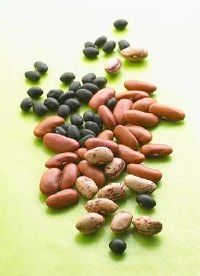Whether you enjoy nuts straight out of their shells, as part of your favorite recipes, or smeared on bread as nut butter, these tasty treats work much harder for you than you might realize. It's time to crack the case and find out what makes nuts so great.
Nuts are packed with muscle-building protein and essential vitamins and minerals. Maybe you've been avoiding these tasty treats because you've heard they are high in fat. That's true, but the fats they harbor are the good-for-you mono- and polyunsaturated kinds. They also contain essential, heart-helping omega-3 fatty acids. Plus, because they are plant foods, nuts do not contain the cholesterol found in animal sources of protein.
Advertisement
We'll explore all those facts in the article below, but first we need to answer a few simple questions. Although you may think you know exactly what nuts are, you'll probably be surprised by how many different categories they actually fit into. Keep reading to learn about the classifications of nuts.
To learn more about nuts, see:
- Nut basics
- History of Nuts
- Health Benefits of Nuts
Advertisement
